Cobargo bushfire senate inquiry hears of complete failure of government
Traumatised residents in the bushfire ravaged town of Cobargo still live in caravans and cobbled together homes more than a year after the Black Summer bushfires.
NSW
Don't miss out on the headlines from NSW. Followed categories will be added to My News.
A federal inquiry has heard attempts to help bushfire affected NSW communities have been a “complete failure” with traumatised survivors still living in caravans, bound up by red tape and cut off from relief for working just one hour too long.
A Senate committee tasked with “learning lessons” from the Black Summer bushfire season, on Tuesday, heard from two volunteer agencies trying to rebuild the shattered town of Cobargo, near Bega, on the NSW South Coast.
Cobargo symbolised, for many, the worst of the bushfires after a firestorm that raged through town on New Year’s Eve levelling much of the historic main street and killing four beloved locals.
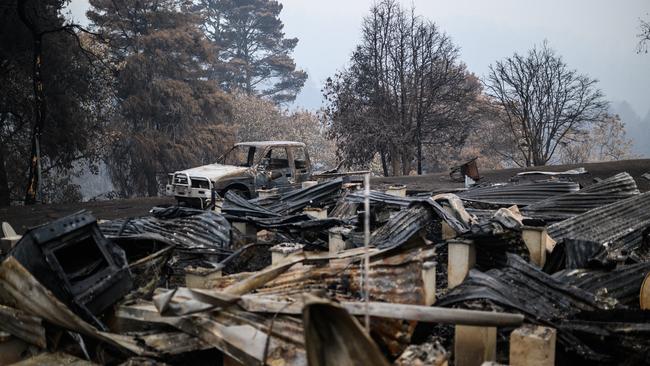
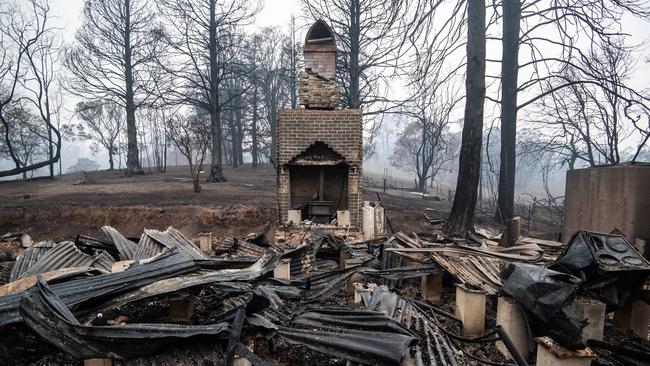
Prime Minister Scott Morrison was heckled by survivors as Cobargo unwittingly became the stage for furious national debates on climate change, emergency services funding and landclearing restrictions.
Despite Cobargo’s significance in the crisis, life in the town fourteen months on is “hardly the stuff of a first-world country”, the inquiry was told.
“People are still living in caravans with a tarp for shelter, half a shed or a (temporary accommodation) Mindaroo Pod – that’s a luxury,” Cobargo Bushfire Relief Centre’s Chris Walters said.
The volunteer leader said Cobargo survivors need in-person counselling and don’t know how to access help – many think all the aid has finished.
Locals still live on properties with dangerous trees that could fall and kill them at any time.
Some homes sound more like shelters – cobbled together by the residents and neighbours.
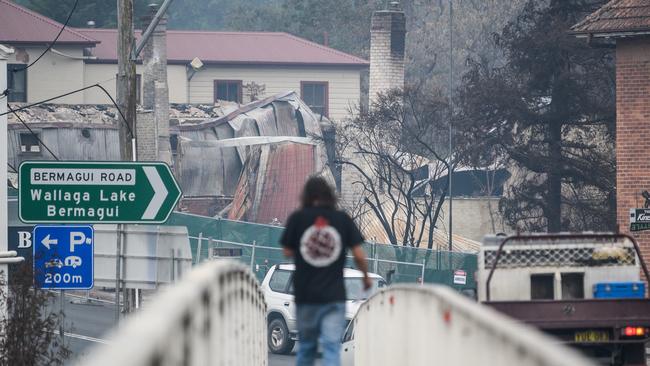
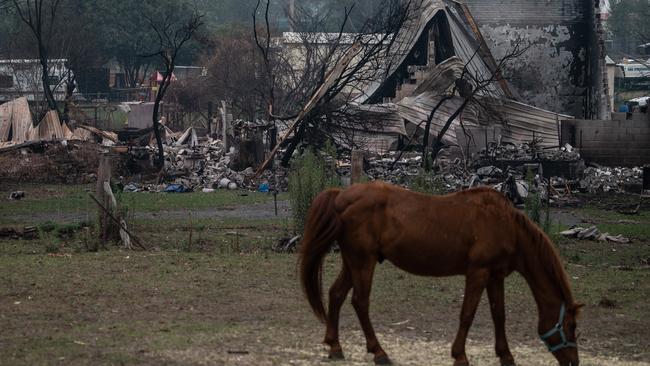
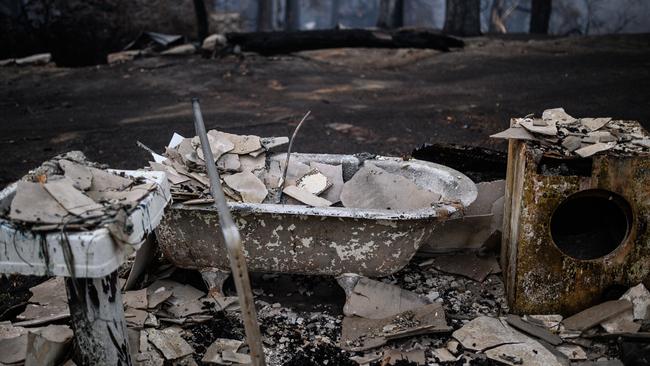
“The bureaucratic hoops people have to jump through and continue to do so are so debilitating that some give up and don’t apply for assistance because it’s beyond them,” she said.
Ms Walters said she knew of many people who missed out on rebuilding assistance because of red tape.
“One lady missed out on this assistance because her income last year exceeded the cut-off point by $27. That’s just one hour of her employment.”
She said the Australian Defence Force weren’t able to help on private properties when they were deployed and asked her what they could do while at the showground.
What’s worse, Ms Walters said, is she has no idea how many people have slipped through the cracks.
Bega Shire Council has knocked back multiple requests for statistics – even without names and addresses – of people still doing it tough, Ms Walters said.
“We are operating in a fog of not knowing if we’ve helped everyone who needs it … we don’t know what we don’t know,” she said.
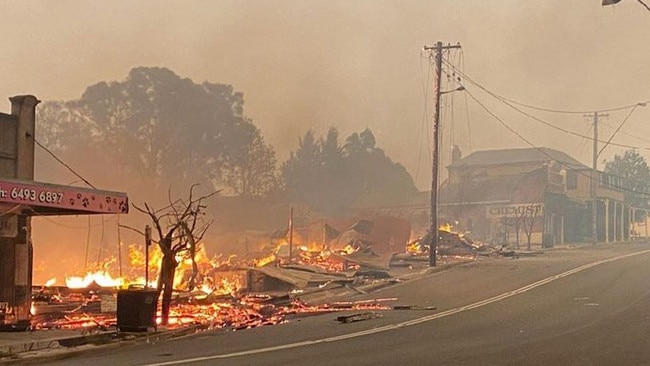
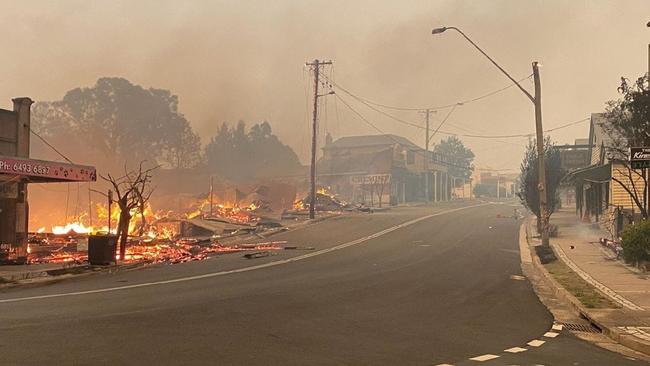
The disconnect between departments, the “gaping hole” of information, is how people slip through the cracks Ms Walters said, echoing countless others who have spoken about the bushfire recovery in the past year.
Cobargo Recovery Fund chief, Zena Armstrong, used her time before the inquiry to focus on the mental health impacts which she said were ongoing.
“It‘s concerning to hear that some in authority are now claiming that most people are doing well, and that it is mainly those with pre-existing mental health conditions who are doing it tough. This is not the case,” she said.
“A full recovery of individuals and communities across the eastern seaboard is still a long way off.”
The inquiry continues.
More Coverage
Originally published as Cobargo bushfire senate inquiry hears of complete failure of government




